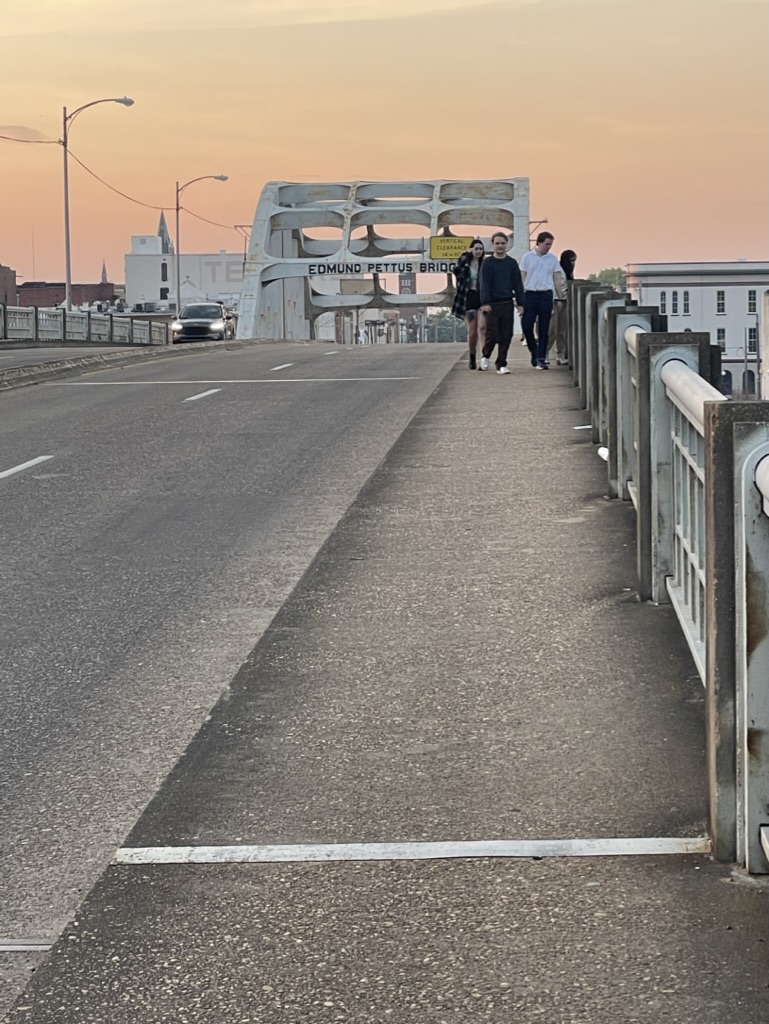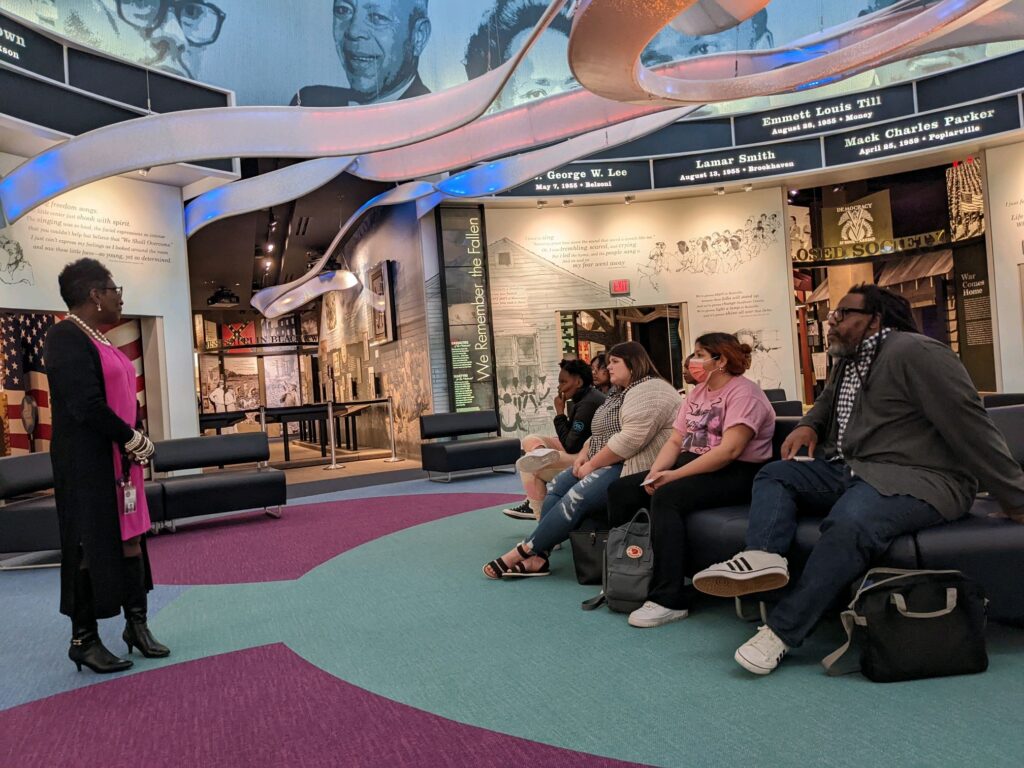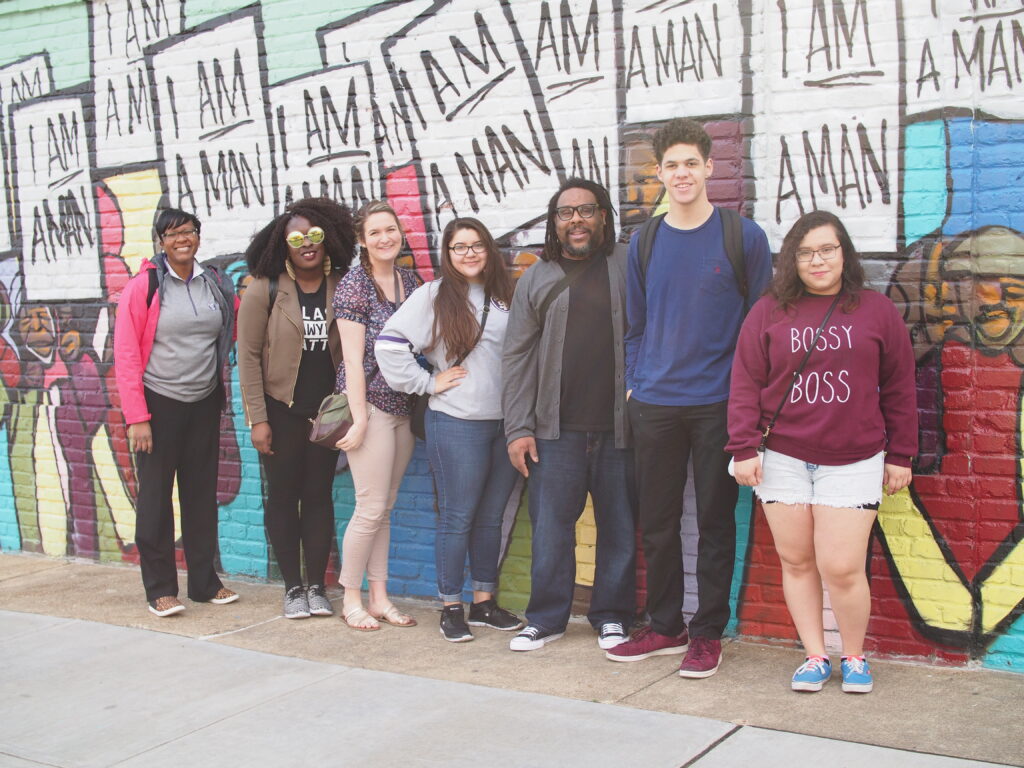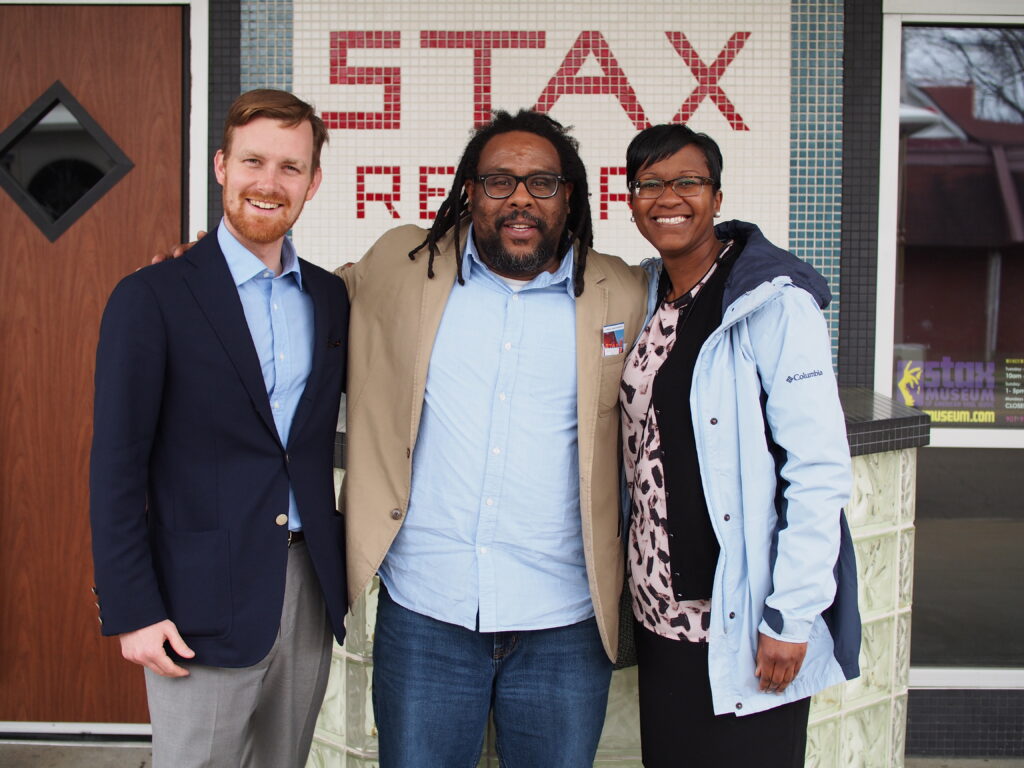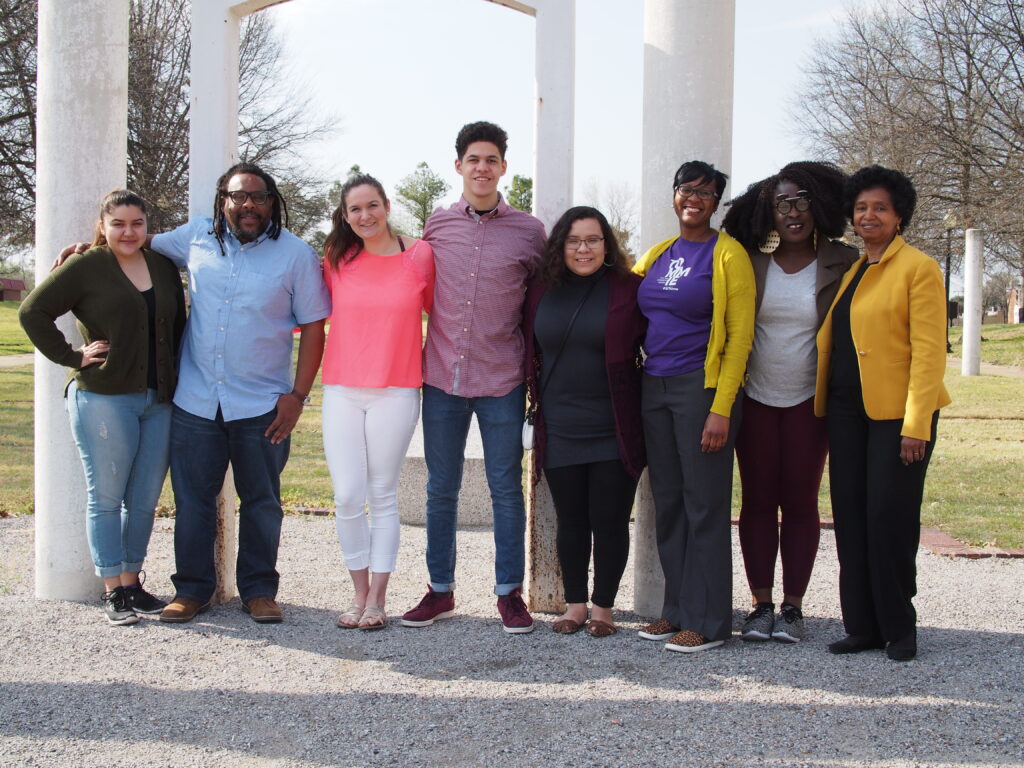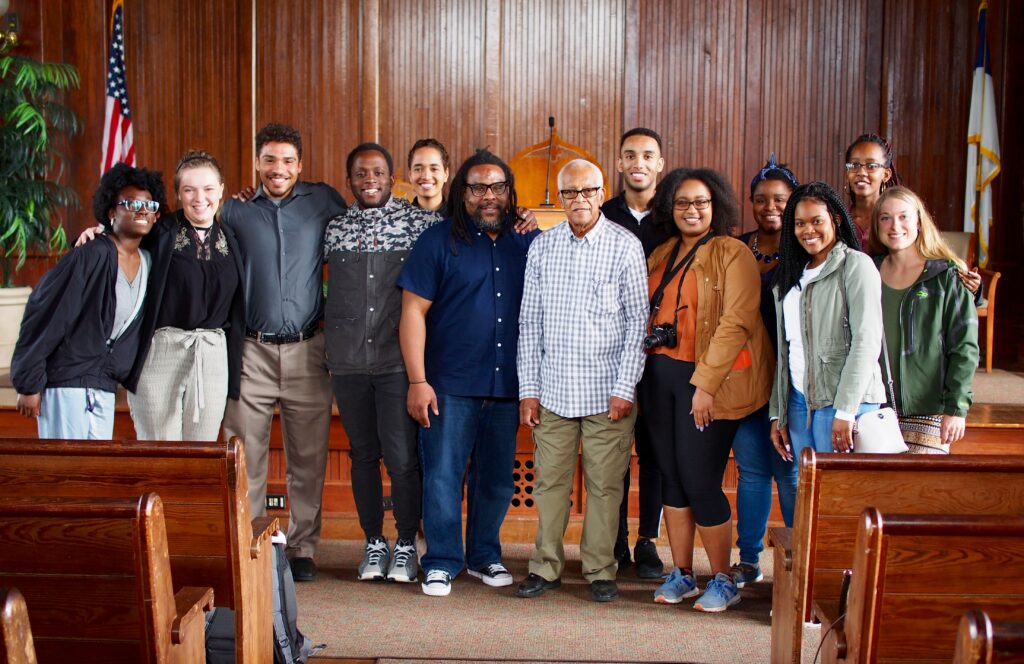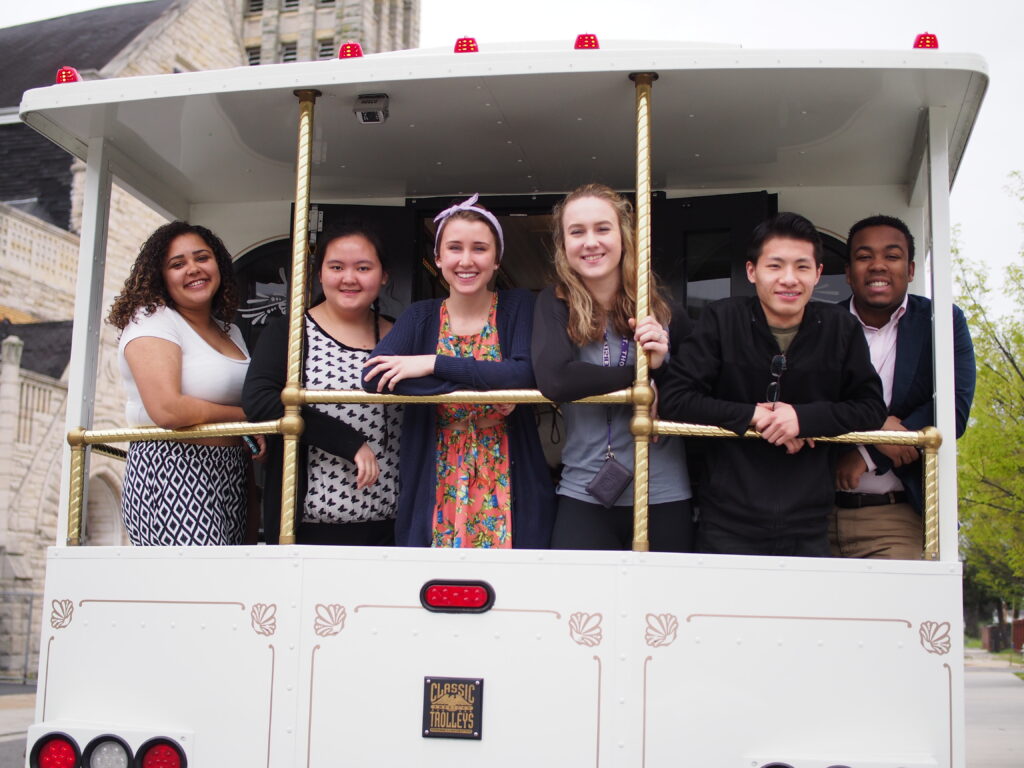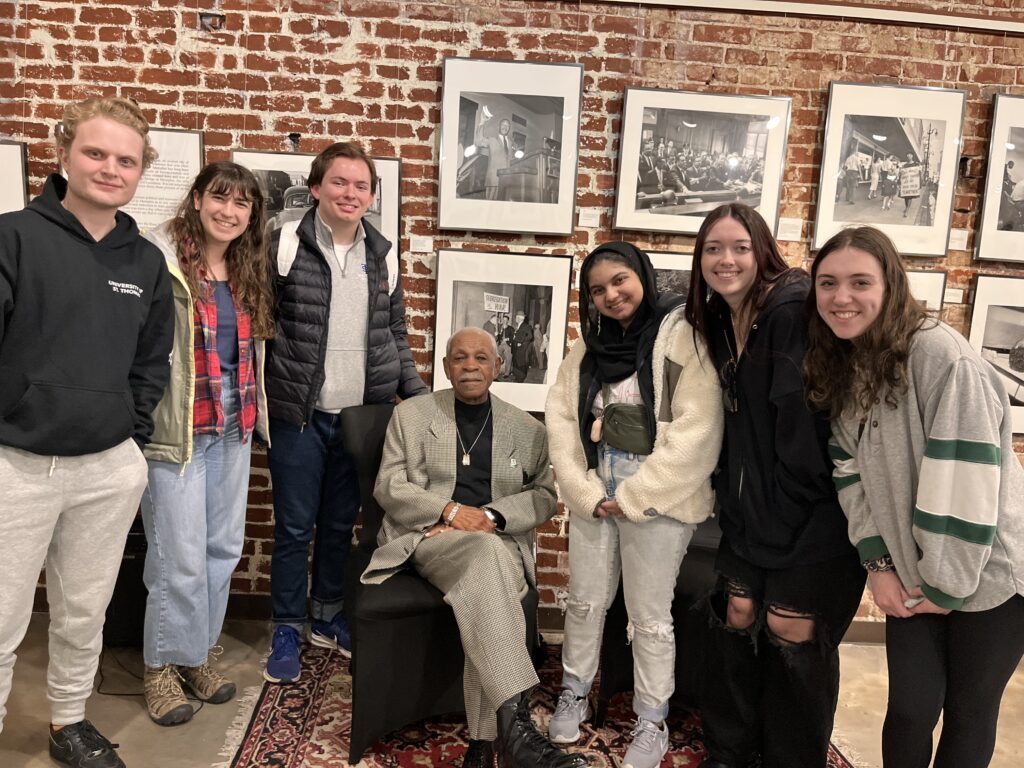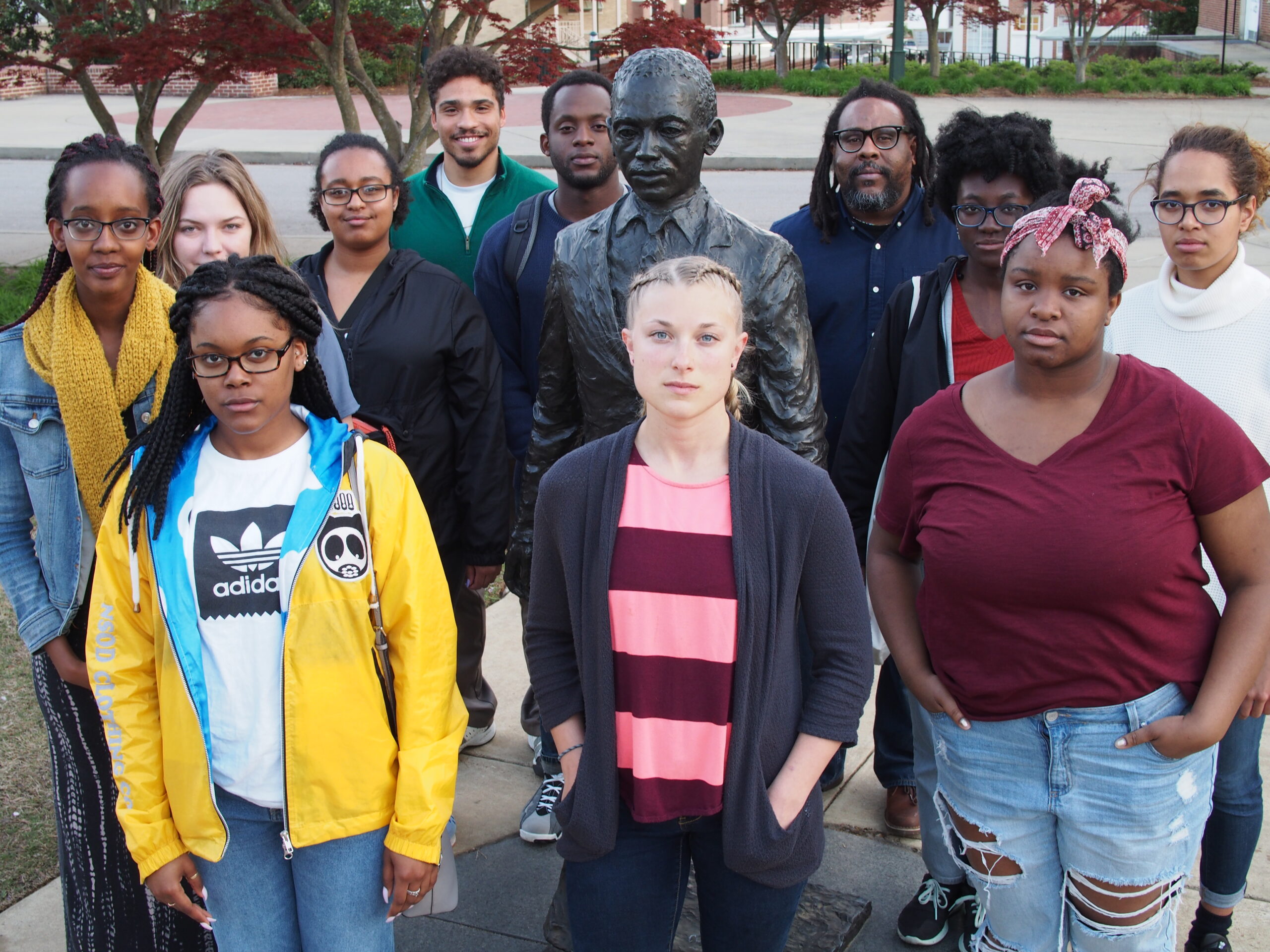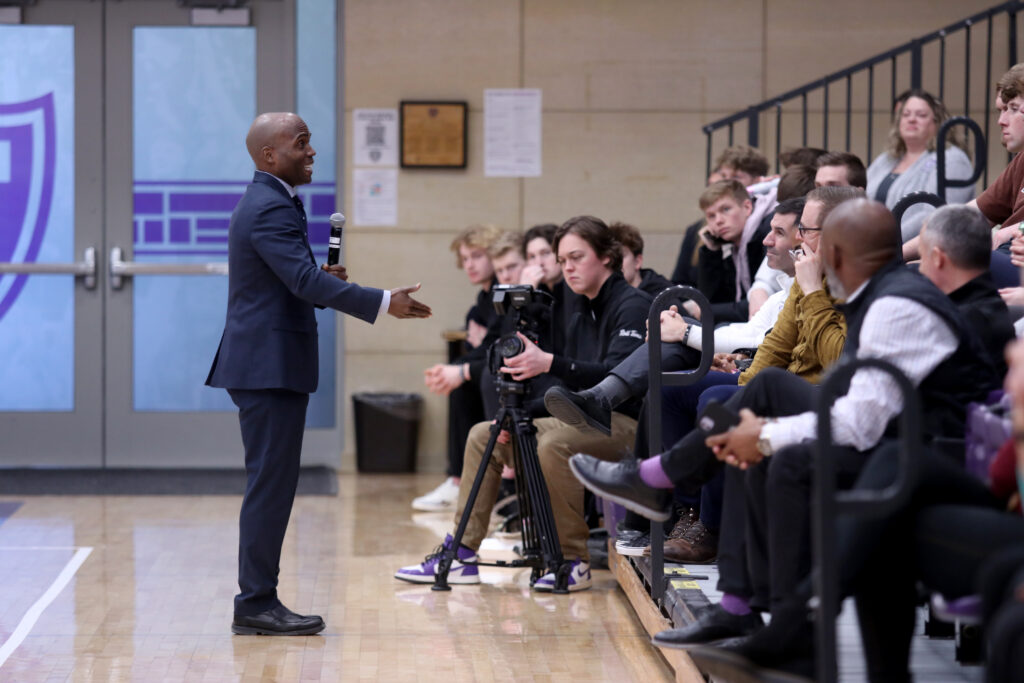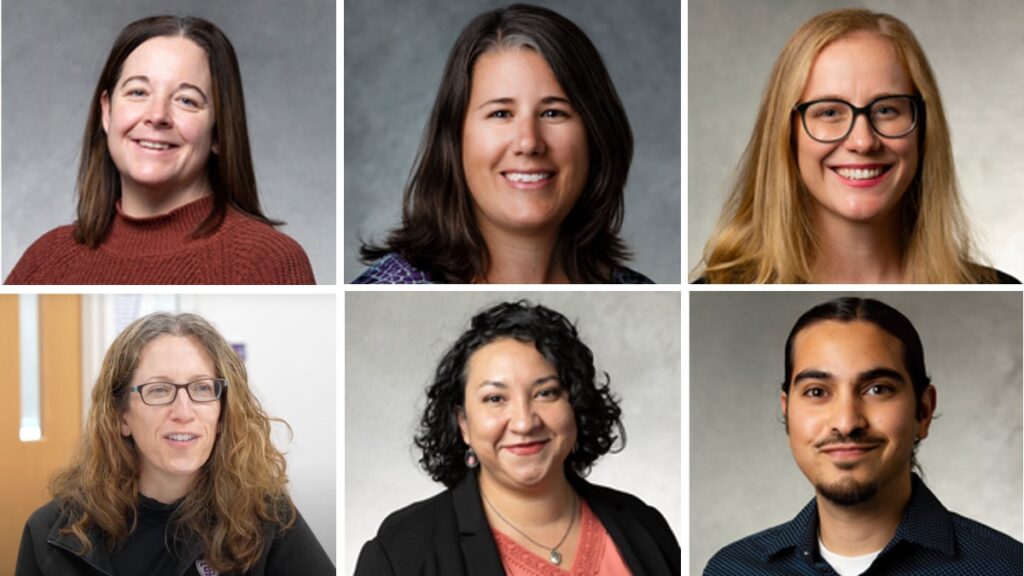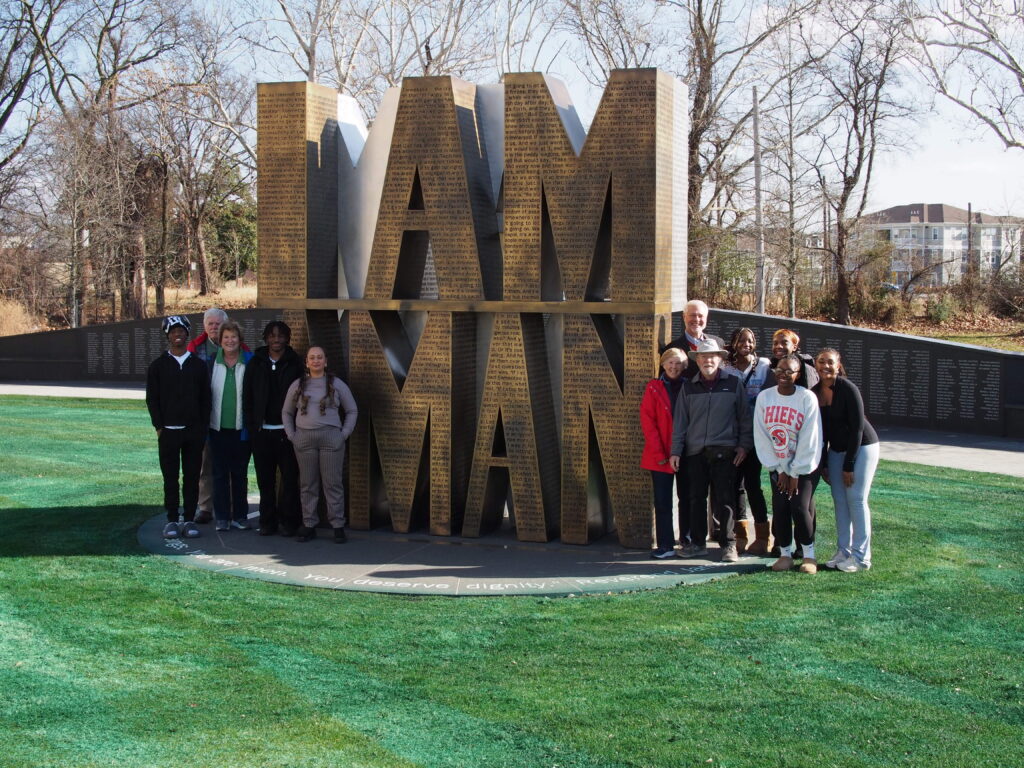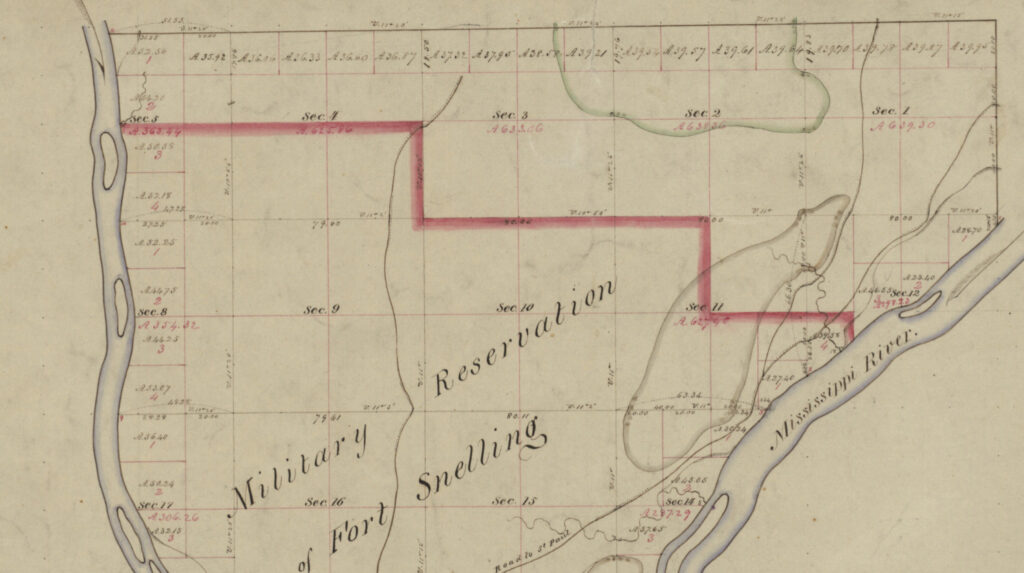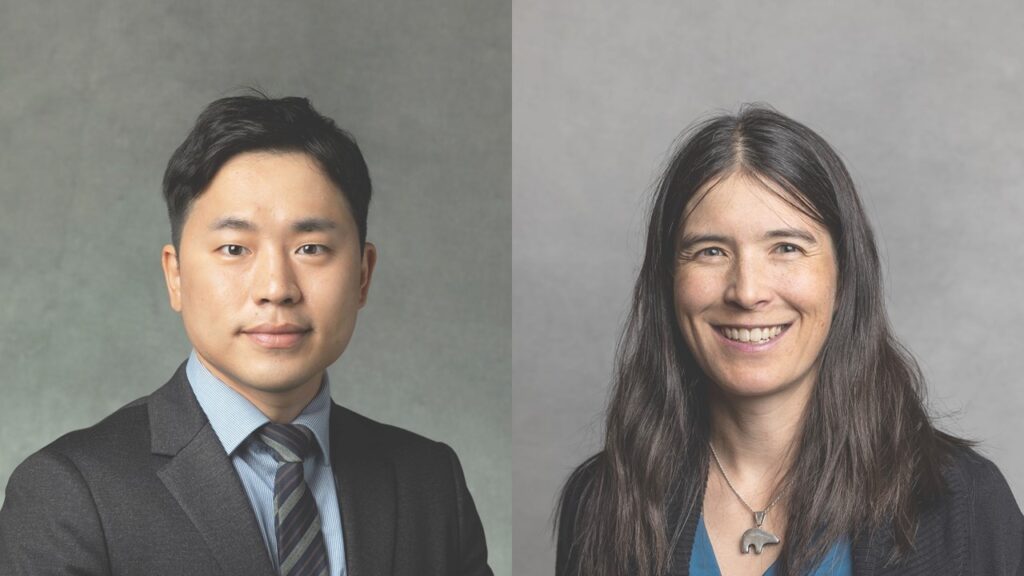The work to repair racial injustice in America continues even beyond the 2021 designation of Juneteenth as a federal holiday, say members of the University of St. Thomas community in Minnesota.
“Juneteenth is a moment of celebration and thinking about the ancestors and our resiliency,” said Shanea Turner-Smith, an adjunct faculty member in the School of Social Work who is also a 2014 alumna. “It is also a time to think about what it means to be free and have we achieved that in the 21st century with everything that we are still facing as people, especially Black and Brown people in this country.”
That there is more work to be done is one of the lessons she and other faculty say St. Thomas students take away when they participate in the annual We March for Justice Civil Rights Movement Study Tour.
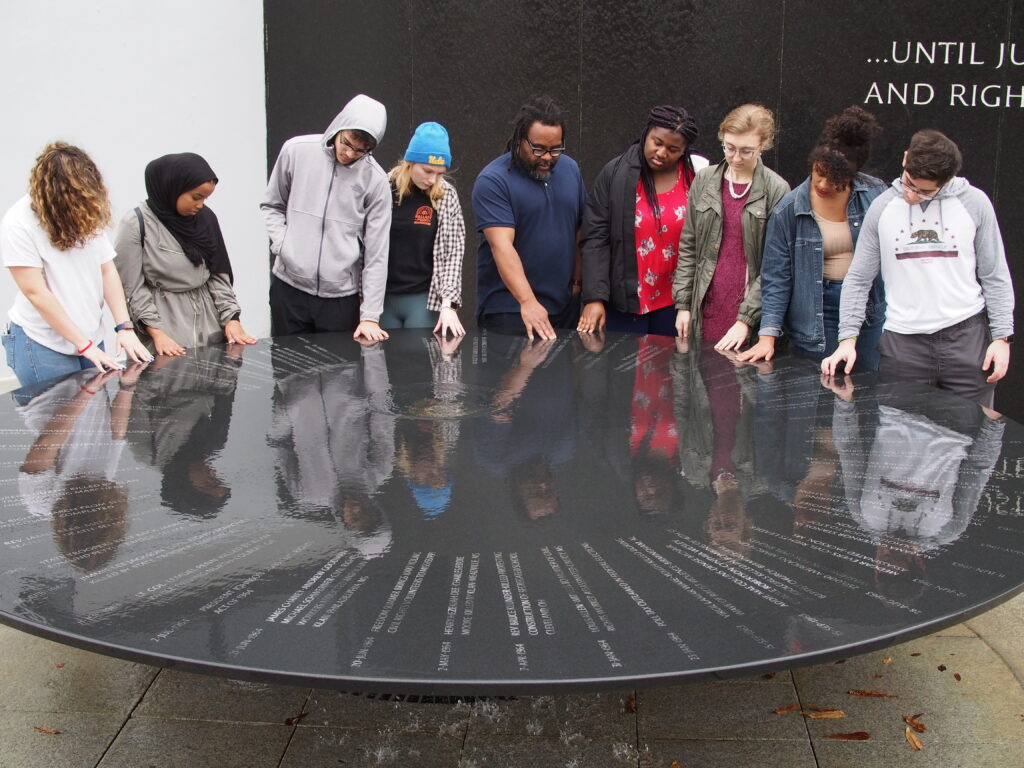
The 2023 study tour that sent six undergraduate students to Memphis, Tennessee, Mississippi and Alabama left lasting impressions on the students and a desire for change.
Studying the past to prepare for the future
“The trip for me was an inspiration in a lot of ways for the work that I do now,” said 2019 alumnus Fru Ndemeno-Tegomoh, who went on the trip in 2018. A political science major and American culture and difference minor when he was at St. Thomas, Ndemeno-Tegomoh said his experiences on the study tour shaped his subsequent law career.
“I think it’s important for people to go on trips such as these,” he said. “It’s one thing to read about the experiences in a book or see it depicted in movies or biopics, but to get that firsthand account, for me, it activated something. It inspired me to go on and do work in civil rights and inspired me to want to study more.”
For the past 10 years, study tour participants have embarked on a history-filled journey across the South. The spring 2023 tour was co-led by Turner-Smith with Associate Professor of History Dr. David Williard and Associate Professor of English Dr. Todd Lawrence. They teach courses – such as one titled Reading Black Resistance – for the interdisciplinary American culture and difference program, which examines America through various lenses to recognize the histories and contributions of marginalized communities.
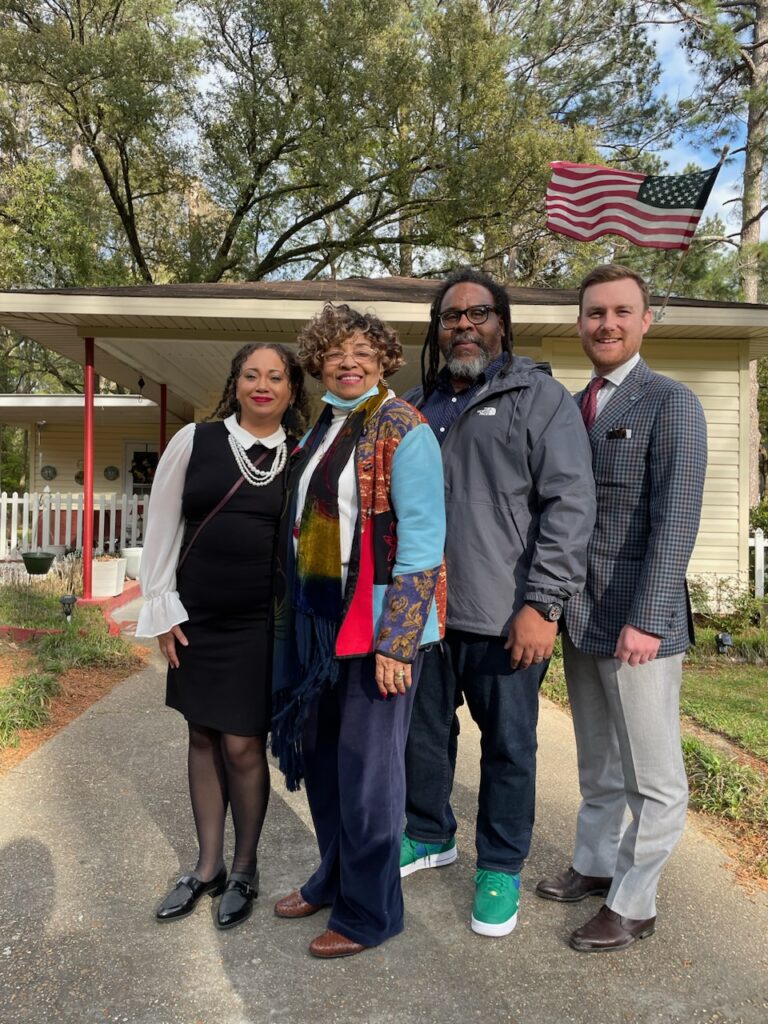
Six undergraduate students joined the professors on the 2023 tour. They learned about the Civil Rights Movement in the very places where the struggles took place, engaging in a culture of encounter to learn from those who lived and witnessed these historical events.
“The We March for Justice Civil Rights Movement Study Tour was one of the most formative and significant experiences of my college experience,” said Laura Murr, a rising senior who participated this year. “The trip is emotionally intense in a life-changing way. There were moments where I couldn’t bring myself to leave a location until I had absorbed a fraction of the enormity of an event and had a moment of reverence for the realities that I will never be able to fathom.”
Murr said some of these moments occurred at the Legacy Museum in Alabama, as well as the “heart-wrenching location” of Mississippi’s Tallahatchie River where J. W. Milam dumped Emmett Till’s body, “and the courthouse where Ms. Flonzie Wright sent us off into the world. These were, as Ms. Flonzie Wright would say, ‘defining moments’ – moments that stick with you and motivate you to create change.”
Foot soldiers inspire new generations
Dr. Flonzie Goodloe Brown Wright is a civil rights activist and in 1968 was the first African American woman to hold an elected office in Mississippi.
“We knew you were coming,” Wright has told each class of St. Thomas students who have participated in the We March for Justice Civil Rights Movement Study Tour.
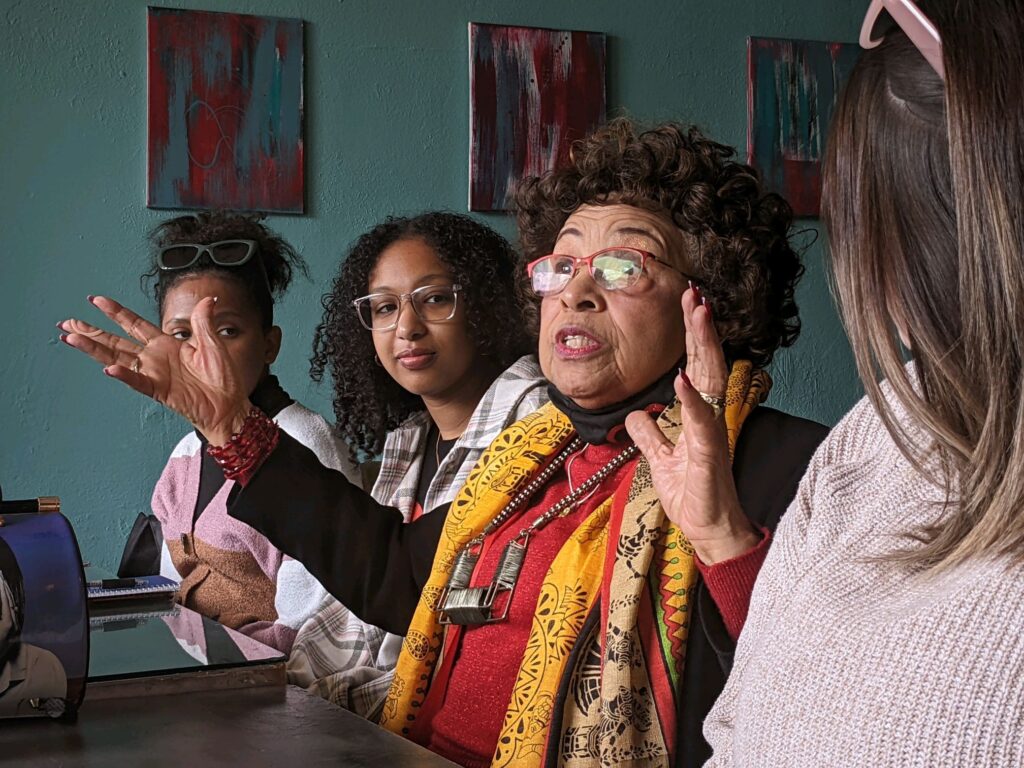
“Wright’s life is a testament to the commitments required for making multiracial democracy real, as well as to their costs,” Williard said. “She bears scars from the day in 1966 when she was trampled into the gravel-strewn pavement by marchers fleeing tear gas and billy clubs.”
When answering why she devoted five decades of her life since her early 20s to promoting democracy and racial justice, Wright reminded St. Thomas study tour participants that they are part of something much bigger than themselves. “Your degree does not belong to you,” Williard recalls Wright’s passionate words to this year’s student participants. “It belongs to the people you are going to help.”
For students on this trip, it was an opportunity to encounter the past by engaging with people who were there, but also to begin to understand the possibilities for building a liberated future.
They learned from several civil rights veterans, including Elmore Nickleberry, one of 12 surviving Memphis sanitation workers who participated in a pivotal 1968 strike for wages and for respect. Nickleberry noted that hard-won gains from the Civil Rights Movement require continued commitment in order to make lasting change.
“They called me boy, but I had been in the Army and knew I was a man,” he said of encounters with police in 1968. Today, while Nickleberry is “thankful they call me Mr. Nickleberry now,” he said he worries young Black people in Memphis face a familiar suspicion and hostility. “People ... still call you boy,” he said, and if things are “a little better,” it’s because younger generations have learned from his generation “not to stand for that now.”
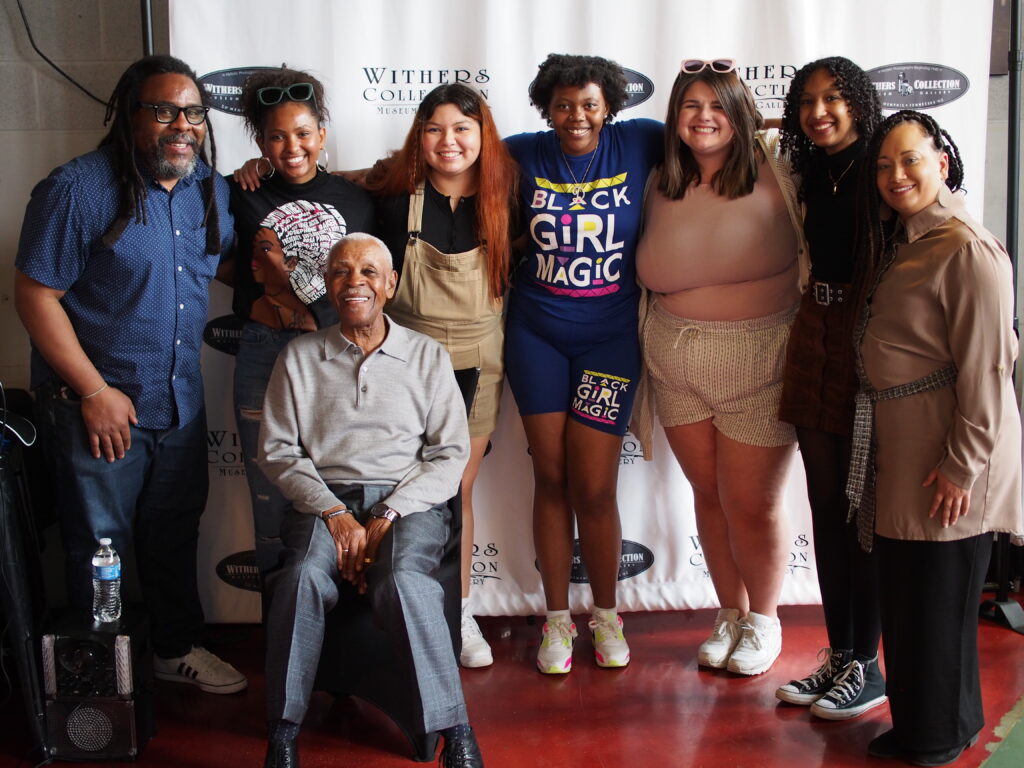
Lawrence said just look at 2023 compared to 2019. “In some ways, things are actually worse for people of color,” he said. “There is pretty much an open assault on the history of Black people in this country to the point where in some states it can’t even be spoken about in a classroom or the teacher will be fired.”
In past years, participating students also studied in other states, including Georgia and South Carolina. The 2024 study tour will have an intergenerational focus and will involve more community engagement. For the first time, students who participate on the study tour will travel with 10 adult learners from the Selim Center for Lifelong Learning.
Experiences that shape careers
“The WMFJ Civil Rights Movement Study Tour is often a life-changing and purpose-defining experience for the many students who have gone on it over the years,” Turner-Smith said. “Each student is left with a burning desire to play their part in their own way to make their corner of the world a better place.”
Turner-Smith knows this firsthand. She went on the trip in its inaugural year when she was an undergraduate student at St. Thomas.
“When I was in college, I did not have the financial means to study abroad so I was thrilled when I learned I had the opportunity to go on the WMFJ Civil Rights Movement Study Tour to learn more about myself and the complicated American identity that I hold as a Black multiracial woman.”
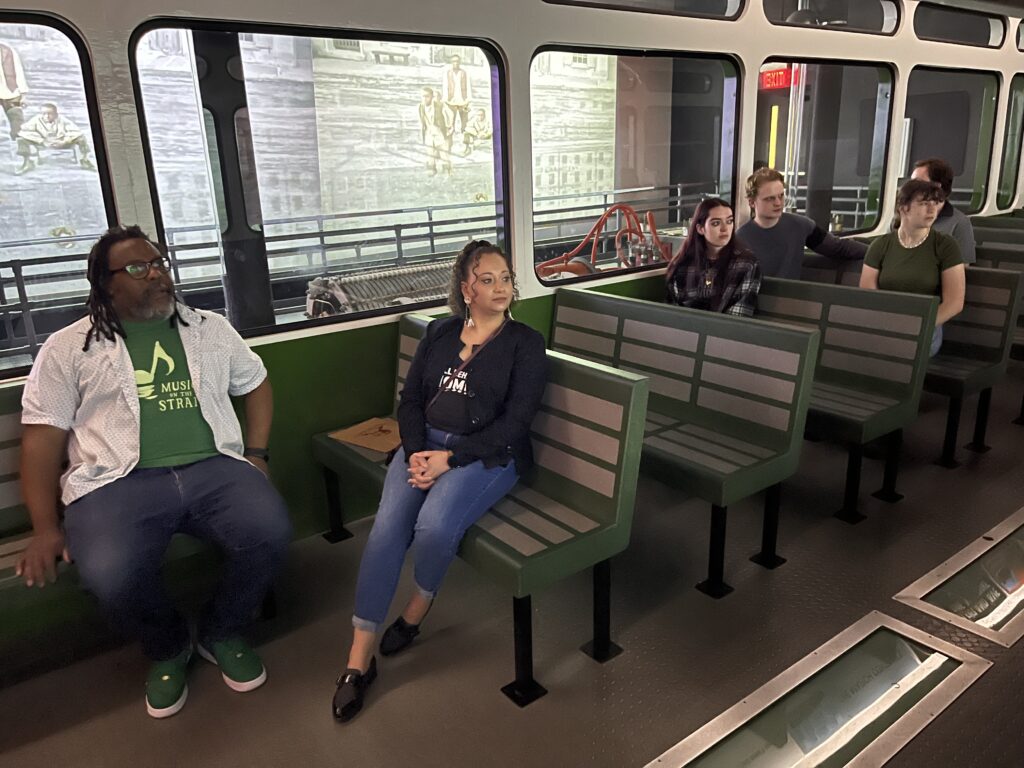
She said she’s very passionate about keeping the legacy of this study tour alive and seeing that the tour continues each year “as we work to build a more just and equitable future.”
“The fight is not yet won,” Turner-Smith said. “Yes, it may have been won on paper, but there’s still much more work to be done to reach full liberation.”
Future Study Tours
The tours, which first started in January 2013 under the leadership of Cynthia Fraction, the former director of the Excel! Research Scholars Program at St Thomas, costs nearly $30,000 to operate. The next cohort is expected to travel in January 2024 at no cost to students.
The We March for Justice Civil Rights Movement Study Tour, Williard said, allows the university to “continue to educate our students to be morally responsible leaders, who think critically, act wisely and work to advance the common good to ensure freedom and equality for all in America.”

